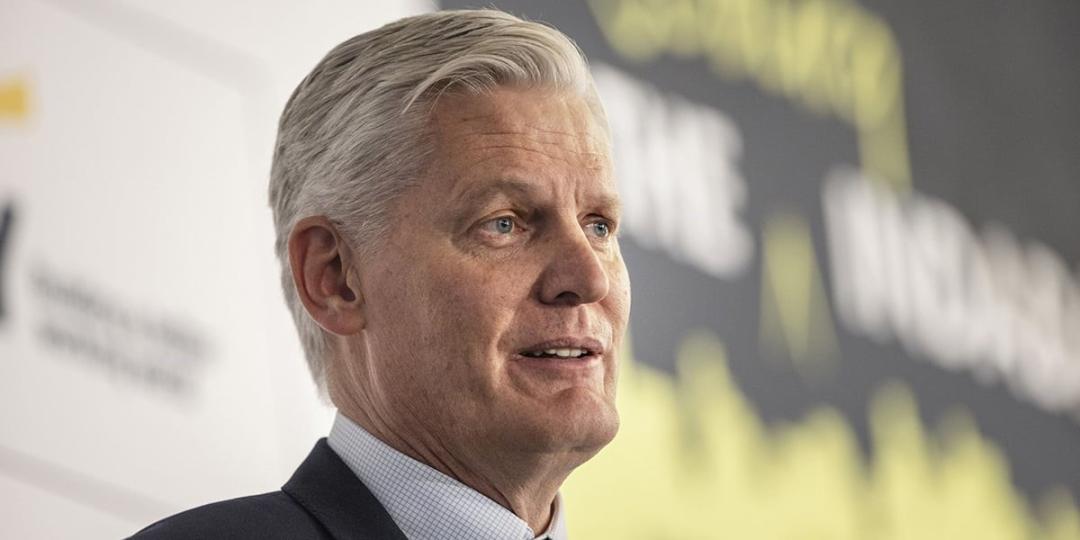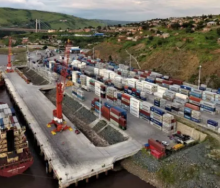Business Unity South Africa (Busa) and economists reacted in shock to the news of the resignation of Eskom CEO Andre De Ruyter on Wednesday.
It comes after Eskom COO Jan Oberholzer, an Eskom veteran, recently said he would retire in April 2023. Eskom said in a statement yesterday that De Ruyter would stay on until March 31, 2023.
Busa CEO Cas Coovadia said De Ruyter’s resignation was “a major blow” to Eskom and the efforts to confront the country’s “ongoing” energy crisis.
“While this is a blow, it is hardly surprising, given the irresponsible comments by some in government and some other sectors. The Eskom Board must act with urgency to announce a replacement, even if on a temporary basis,” he said.
“The replacement must have the skills and capability to continue all efforts to reduce load-shedding, accelerate the Eskom restructure, tackle ongoing corruption and sabotage, and work with business to diversify the energy generation and distribution environment, with the focus on cleaner energy.
“Business remains committed to working with government in this single biggest crisis, in the midst of a series of crises. We also urge President Ramaphosa to rise above the issues in the ANC and lead the country in urgently responding to this crisis. This exacerbates an already critical situation.”
The business organisation commended De Ruyter for the “valiant efforts” he had undertaken to act in the national interest under “unbearable conditions”.
Economist Dawie Roodt said his resignation came “at an unfortunate time”.
“He has done a sterling job but there was a lot of pressure on him, including political pressure, to resign,” Roodt said.
“To fix Eskom is going to take a long time, it doesn’t matter who you put in charge. The real problem is if you put the wrong person in charge things can get worse than what we are currently experiencing. I am concerned that could be the case - that somebody taking over from Andre De Ruyter might decide to run the power stations very hard and the result could be less load-shedding in the short term but the total collapse of the system in the medium to long term,” he added.
“The biggest disappointment was despite political attacks on De Ruyter, the president or the minister of public enterprises said nothing…they did not defend him in public. It is unfortunate we are changing a driver in the middle of a crisis. This is coming at a really bad time.”
Eskom’s woes have limited the country’s economic growth to an estimated 1.5%.
Bureau for Economic Research economists said in a statement that De Ruyter’s resignation was “a further blow” to the parastatal.
It comes after Mineral Resources and Energy Minister Gwede Mantashe led public attacks on him. He also did not receive public support from President Cyril Ramaphosa or Public Enterprises Minister Pravin Gordhan.
De Ruyter, who has been in the job since January 15, 2020, has been under increased political pressure in recent weeks as the extent of power cuts has worsened.
“The departure of both the CEO and COO in quick succession will leave a big hole at the state utility. This is especially the case after Rhulani Mathebula, the acting head of the generation division, resigned in November,” the economists said.
In addition, the new Eskom board is still finding its feet.
“Increasingly, it is clear that the strains of a management position at Eskom have become unbearable. Especially in the current political environment, this begs the question whether anyone with a credible track record would be willing to replace De Ruyter. Even if a capable manager is appointed, it will take time to fully appreciate the intricacies of the problems faced by Eskom and the major reforms that need to take place.”
BER economists added that from a broader economic perspective, the loss of several skilled and experienced personnel suggested that it might take longer to move out of the current extreme levels of load-shedding.
“The situation could worsen further, adding downside risks to an already constrained outlook for real GDP growth in 2023. Importantly, we should be vigilant and interrogate the strategy of the new board and management, especially if this includes cutting back on planned maintenance in order to keep the lights on. Such a strategy, pursued under previous leadership to the great detriment of the country, will only result in even bigger energy supply problems in future as unplanned outages escalate further,” the economists warned.













